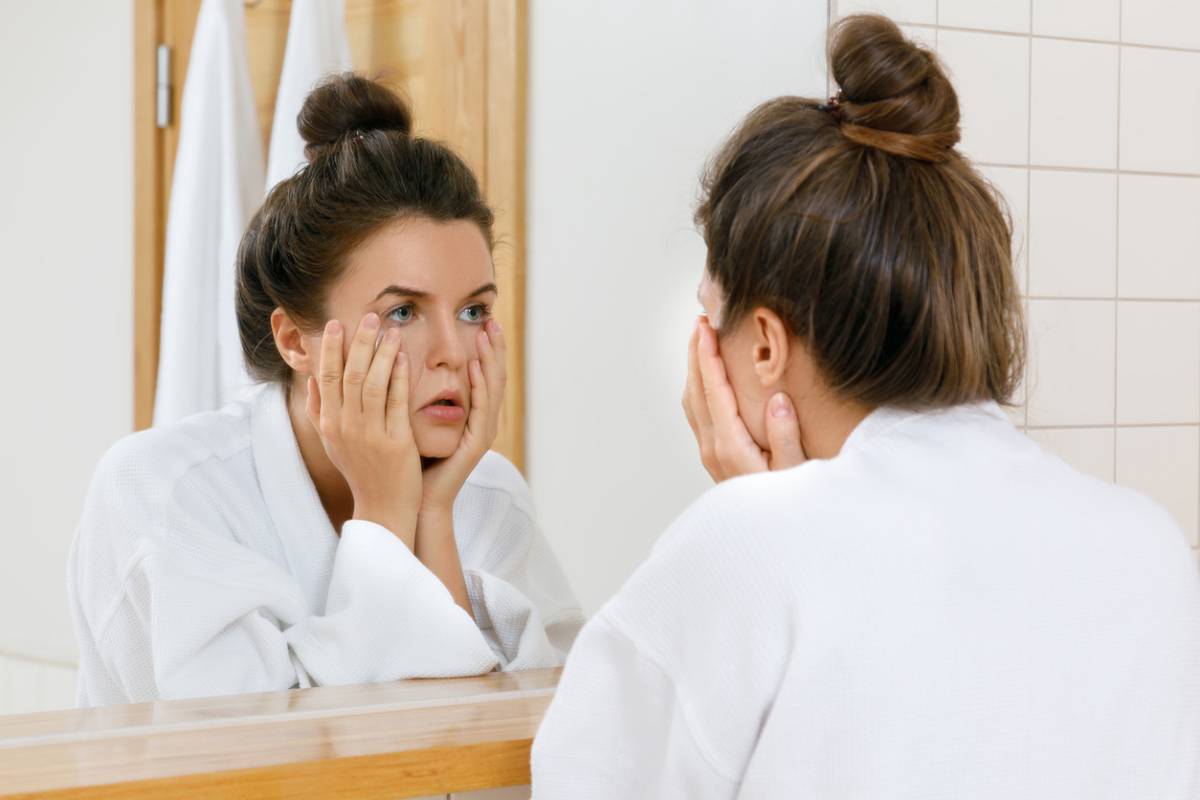Anemia is a condition characterized by a lack of healthy blood cells. It is usually associated with low iron levels and can result in an inadequate supply of oxygen to your body. The appearance of dark circles under the eyes is one symptom that may indicate anemia thanks to the lack of properly oxygenated blood. With that said, dark circles are not an automatic indicator of anemia. There are many potential causes for dark circles.
Do Dark Circles Mean Anemia?
If you have dark circles and are experiencing other symptoms of anemia, including:
- Dizziness
- Fatigue
- Heart palpitations
- Pallor
- Weakness
- Shortness of breath
- Regular headaches
Then you should talk to your doctor. A simple blood test will show whether or not your levels are within the normal range. For patients who are anemic, dietary changes and iron supplements are usually enough to address the issue. However, if you do not have anemia, your dark circles are most likely the result of one of the following factors.
Genetics
Unfortunately, one of the most common causes of dark circles, especially in younger people, is just genetics. The trait tends to affect people with more melanin, but instances can be found in any population. Sadly, most topical treatments will not work on naturally dark circles, so you may have to consider having a professional treatment or eyelid surgery in Newport Beach if your dark circles are more than you can stand.
Aging
In addition to genetics, aging is the other primary cause of dark circles. These dark circles are different, as they tend to be created by either insufficient or excess volume under the lower eyelid rather than increased melanin. There are some treatments and lifestyle habits you can adopt to decrease the appearance of sagging skin under the eye. Still, the best permanent solution is generally having lower eyelid surgery in Newport Beach.
Poor Sleep
Dark circles commonly prove associated with sleep deprivation, and often proves the case for some people. If you aren’t getting your recommended eight hours a night, the blood vessels beneath your eyes are more likely to dilate, making them appear darker. The good news is that you can address this cause by changing your habits. Implementing a regular sleep hygiene routine is a great first step to waking up fresh each day.
Dehydration
Hydration is important to literally all aspects of our health. That includes our skin and our blood vessels. If you aren’t drinking enough water to sustain your body, your skin may lose some elasticity, causing the appearance of sunken lower eyelids. Fortunately, rehydrating for a week or so should return a lot of the youthful bounce your skin should have.
Sun Exposure
UV radiation wreaks havoc on the skin, and the skin around your eyes is some of the most sensitive. Excessive exposure to the sun can increase the appearance of dark circles in two ways. First, it prompts the body to produce melanin. If your under-eye area is already slightly darker, this will make the difference more prominent. Second, most natural aging happens as a result of sun damage, which will hasten the development of sagging or puffy skin underneath your eyes.
Smoking/Alcohol
Smoking and alcohol are both commonly associated with premature aging as a result of the toxins they contain. Coupled with the dehydrating effects of both and the direct attack on collagen and elastin by the toxins contained in cigarettes, drinking and smoking can greatly hasten the aging process.
Dealing with Dark Circles
Dark circles are usually only a problem if they bother you. The good news is that improvements in nutrition and skincare can greatly reduce their appearance in many cases. However, if you’re still struggling with your dark circles, talk to your local Orange County oculoplastic surgeon to learn more about what you can do to get rid of your dark circles.
